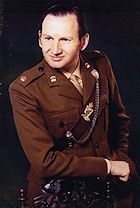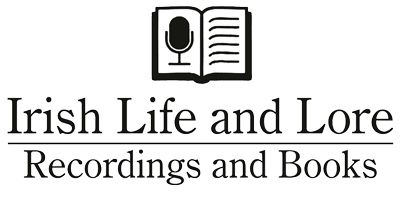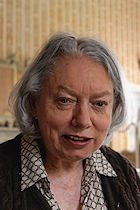Track 1: Richard Kilroy initially discusses his home at The Moat, Oldcastle, and its historical background. His grandfather’s Cavan ancestry is also considered. He discusses his father Alan Kilroy’s service in the Indian Army and the purchase of Castlecor House and farm. His own early childhood is recalled as is the voyage from Glasgow to Bombay on a Polish liner, travelling in convoy in 1944, and their return to Ireland two years later. He mentions his education in England, his admittance to Sandhurst and commissioning into the Royal Irish Fusiliers in 1956. He remembers his mother, Cynthia, and her Rochford-Rae family. Her father Gustavus served in the Gloucestershire Regiment and later transferred to the Rajput Regiment in the Indian Army. During WWI, Cynthia remained with her mother and two aunts in Sussex. Richard also recalls his grandfather who became a Turkish prisoner of war after the Kut-El-Amara expedition, and the 1,000 mile march to the POW camp at Kastamouni on the north coast of Turkey where he was to remain until the very end of 1918. After some months’ leave, he returned to the army and Richard tells of visiting his grandmother’s grave in the Himalayas. Richard’s father, Alan James Minchin Kilroy, and his education in Oldcastle and Dublin are discussed. In 1916, during Easter Week, he went to take the British Army exams to be commissioned in TCD and owing to the activity on the streets outside, none of the examinees were allowed out for the week. Alan and a friend then decided to join the Indian Army rather than an Irish regiment in the British Army. Thus he attended the staff college at Quetta in India and was commissioned initially into the 7th Rajput Regiment, later transferring to the 36th Sikh Regiment. He served mainly in the Middle East and on the North-West Frontier. Richard reflects on the reason why his father did not join an Irish regiment in the British army and he emphasises the numbers of Irishmen who served in the Indian Army, fighting in Iraq and Kurdistan. He recalls his father’s love of the Sikh people, his fluency in Punjabi and the fact that he considered them to be the aristocrats of India. His father was recalled in 1939 as a Senior Major, and was engaged at a high political level at General HQ in Delhi, heading military public liaison. In WWI India sent quite a contingent to the Western Front and Richard discusses the photographs which show Indian men in the trenches and how they distinguished themselves, despite the strange circumstances in which they found themselves. He says that a tradition existed of Irish people serving in the East India Company, the Indian Army, and Indian Civil Service. He talks about the return to Ireland from India in 1946, and how his father took up the reins of his farm again. He considers that his father had been changed by his experiences and explains that living in Ireland must have been quite a contrast from his life in India. His hard work on the farm is discussed and Richard explains that though generally he did not keep up his connection with India, on one occasion an entourage of Sikhs arrived in Ireland to consult him about the political situation in India and Pakistan. The last reunion of the Sikh Regiment in London in late 1960s is recalled. In a similar vein, he says that his grandfather organised the Kut-El-Amara dinners in London until about 1960, and Richard still holds the list of names used to contact these men. His father’s attitude towards the Crown and his sense of identity are considered by Richard. Track 2: The connection with Reendesert House in Ballylickey in West Cork, and his mother’s residence there during her widowhood is discussed, and Richard gives some detail about the Rotherams, who had previously lived in Castlecor House, and who also served during WWI. The house was originally owned by the Webbs, a Quaker family, he says. He recalls the water power turbine on the Castlecor property, which always fascinated his father and which provided electricity to the house. He further describes the circumstances surrounding his father’s purchase of the house and some local difficulty. Richard remembers that, as the youngest of thirteen, his paternal grandfather had to make his own way and became a very successful breeder of horses and Aberdeen Angus cattle. He recounts an anecdote relating to Captain Naper’s house, and Mrs Naper’s marriage to an Australian named Rodney Matthews, whom Richard remembers as an ‘absolute daredevil.’ Track 3: Richard’s paternal uncle, Tony Kilroy, was in Canada when WWI was declared. Initially, Tony joined the Canadian Mounted Rifles but when he realised that the regiment would not be mounted in France, he transferred to the Machine Gun Corps. He survived the war and returned to Ireland to live at Clongill, near Navan. Richard talks about the Webb family of six of which Tony’s wife Jane was one. None of the six siblings had offspring. He explains that the Quaker burial ground is still beside Castlecor house. His uncle Tony’s involvement with fishing on Lough Sheelin is recalled, and Richard’s maternal grandfather’s service with the Royal Air Force during WWII and his work with the ARP are discussed. Richard says that he is very proud of his relatives’service and says that it cannot have been easy for an Irish person to serve abroad with the British or Indian Army, knowing that there was trouble at home. He treasures their medals and cap badges. Richard joined the British Army himself, and he explains that he did not join the Irish Army because, in 1955, its personnel were not serving abroad. Having been to India, he was interested in foreign service, and he served in Africa and the Middle East with the Royal Irish Fusiliers. He tells an amusing anecdote about providing hospitality to the 35th Battalion of the Irish Army in Libya on their way to the Congo. To conclude, the bronze plaque brought by Richard’s grandfather from the train that brought him back from the prisoner of war camp to Istanbul in 1918 is displayed and discussed.

Richard Kilroy (b. 1937)
Richard Kilroy (b. 1937)
€10.00 – €20.00
Additional information
| Type: | MP3 |
|---|---|
| Audio series: | The Irish Country House and the Great War |
| Bitrate: | 128 kbps |
| Download time limit: | 48 hours |
| File size(s): | 12.24 MB, 6.76 MB, 8.97 MB, 13.68 MB, 11.42 MB |
| Number of files: | 3 |
| Product ID: | CHGW01-41 |
| Subject: | The Kilroy and the Rochford-Rae families and their long military service |
| Recorded by: | Maurice O'Keeffe – Irish Life and Lore |







